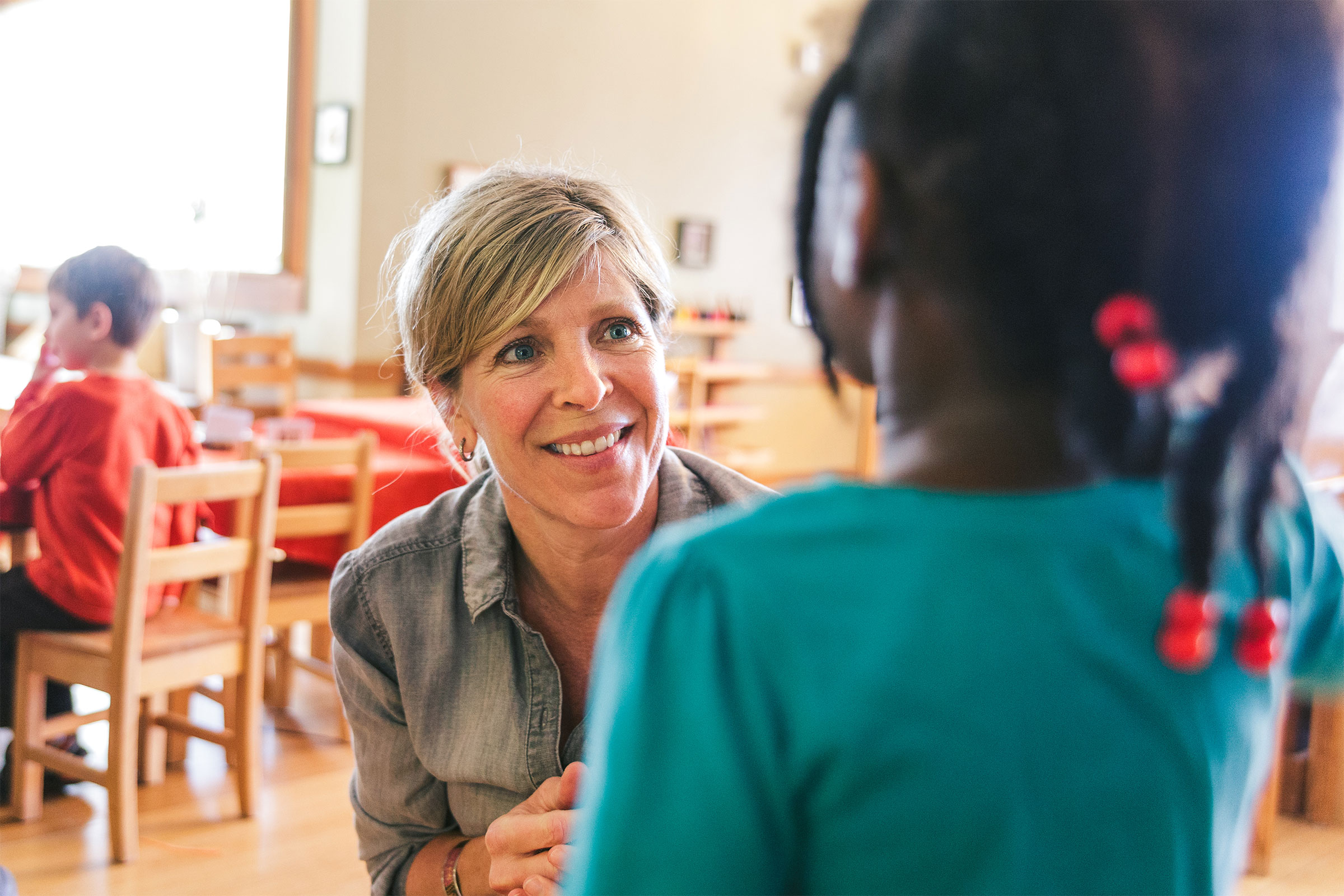Assessments of children’s progress are done by observation of the work and abilities of the children. Standardized tests are rarely given—only when required by licensing authorities. Some schools use a portfolio of a 6–12 child’s work but only as an assessment tool for the child who is moving to a different school. Children under the age of 6 are never tested. Being knowledgeable of the curriculum for the age, a teacher, from observation, knows the “next steps” in the child’s learning curve and plans accordingly.
The AMI-trained teacher is knowledgeable of child development and where a child might be on a developmental spectrum. From observations, deductions are made and plans for future work are created. The plans are reviewed frequently and serve as a guide for the adult’s next steps.
As the Montessori approach focuses on human development rather than an educational model, scientific observations are used rather than standardized tests to assess a child’s developmental progress.
